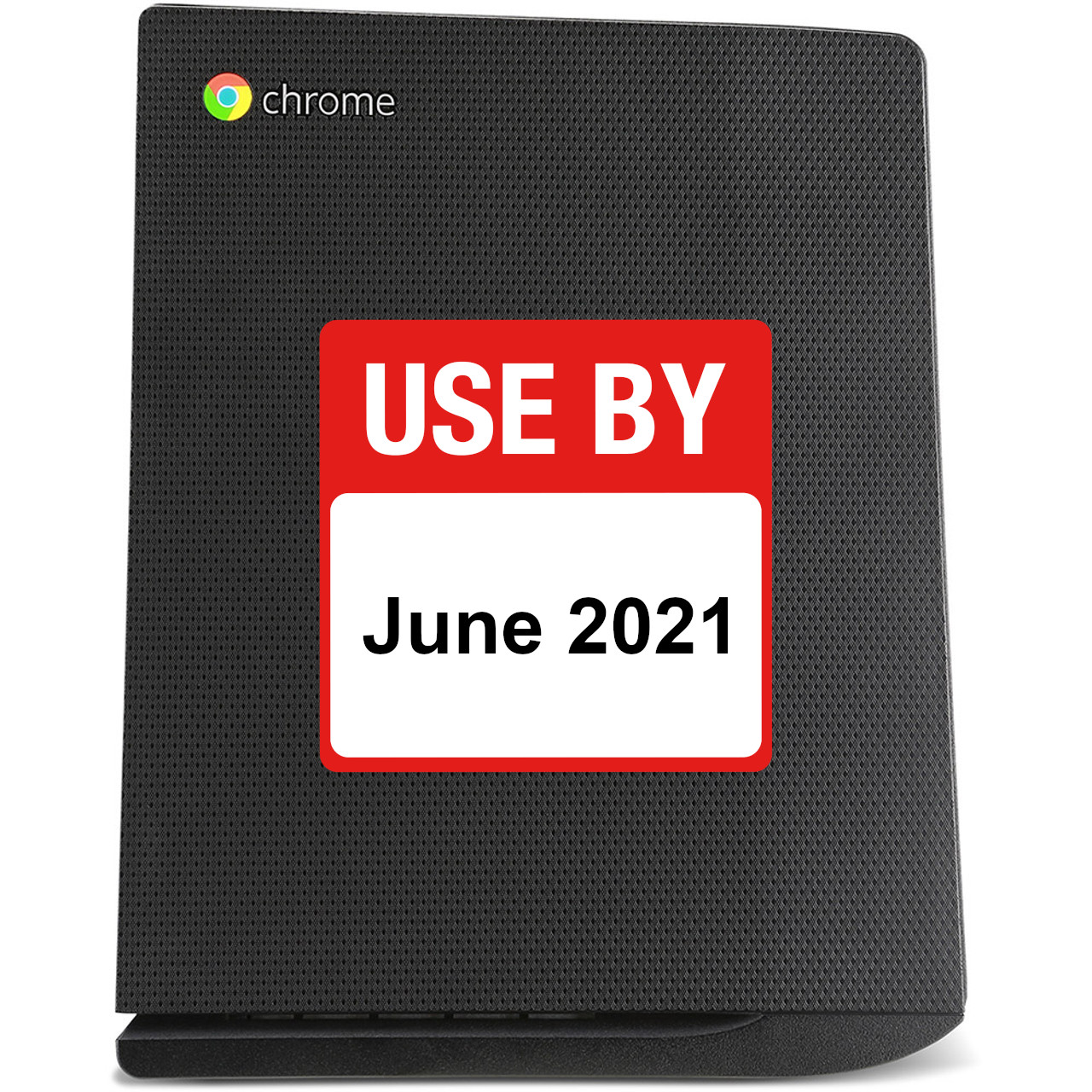What to do with an expired / end of life Chromebox or Chromebook?
Don’t throw it out
Owing to when Chromebooks and Chromeboxes really caught on, there are a lot of them reaching their Auto-Update Expiration dates, and for security reasons, no Internet connected device should be used if it stops receiving updates. But these machines don’t need to become E-waste, now that most can have a “regular” OS installed on them. Plus, due to their relatively small size and low power draw (compared to most computers), there are unique uses for them as far as repurposing old computers goes. Here are 12:
1. Keep using it like a Chromebox or Chromebook
Installing either Chrome OS Flex or Brunchbook will keep it a lightweight Internet-centered machine. Use it yourself or make it a starter, guest or loaner machine.
(These are not officially supported)
2. Use it as a Linux machine
If it doesn’t meet the requirements for #1 or if you want to use Linux instead. It still makes for a great guest or loaner machine (especially if you use a distro that has a non-persistent guest option).
3. Hook it up to a TV
After doing #1 or #2, having it connected to your TV makes more streaming options available on your big screen. If doing #2, Kodi is a good addition.
(I don’t advocate illegal activities / streaming. But I maintain that, writ large, it is more a service issue over a pricing one—e.g. the confusing landscape of NFL broadcasts)
4. Make it a recipe machine in the kitchen (Chromebooks only)
After doing #1 or #2. Also good for any place where spills and splashes would be concerning with a more valuable machine.
5. Let nosy web services focus their tracking on it
After doing #1 or #2, for privacy-minded people, using only one machine for those nosy web services, and only using those services on that one machine will help contain the tracking, due to the way browser fingerprinting works. For extremely privacy-minded people, use Tails.
6. Play retro games on it
Installing Batocera and connecting a video game controller will effectively make it a retro game console.
7. Make it a media server
After doing #2, installing Plex server software and connecting an external drive make for a nice personal media server (likely without transcoding, due to the lower powered CPU/GPU), for watching your content on all your screens.
8. Make it a file server
I am firmly in the “Network Attached Storage should have ECC memory”-camp, but for non-critical files, either doing #2 and setting up an FTP server or installing Unraid make for a nice file storage / sharing setup.
9. Make it a smart home hub
If you have a machine with at least 32gb of storage, installing Home Assistant OS is a viable option for making it a smart home hub.
10. Make it a firewall / VPN / secure web gateway
Getting a second Ethernet port via USB adapter (preferably with an Intel chip for compatibility) opens up the option to install OPNsense, and makes for a nice firewall / VPN / secure web gateway.
11. Sell it
As they can continue to be used for many reasons listed above, I have seen enterprising folks selling ready-to-go Chromeboxes and Chromebooks on eBay which have reached their Auto-Update Expiration dates, and have had Mr Chromebox’s coreboot installed.
12. Give it away
Good causes include:
As for me:
I was opening an account for a news webapp as I was setting up Mr Chromebox’s coreboot on my (basically free) Acer CXI2, and I was shown recommendations based on my wife’s browsing. That settled my decision on what to do with this Chromebox. I installed Lubuntu (#2), installed Brave and Tor browsers for their privacy features to let nosy web services focus on it (#5), made it a pseudo-NAS (#8), and have Batocera on a USB drive for my infrequent Tetris fix (#6).
Not bad for a basically free mini PC.

Share: